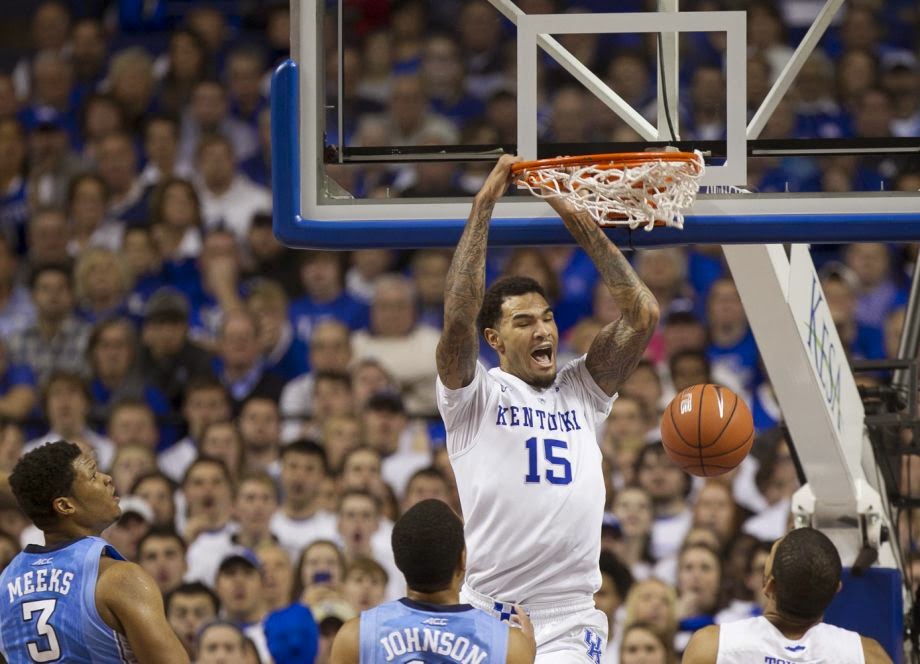March Madness 2015: Can Kentucky complete its pursuit of perfection? Yes, and probably not
Before the Manifesto gets to its annual obsessive analysis over the March Madness field, let me just tell you the only two things you really need to know about this year’s NCAA men’s basketball tournament:
- You’re a fool if you pick anyone other than Kentucky to win the NCAA title.
- Kentucky is unlikely to win the NCAA title.
Now, if those two statements seem flatly contradictory, recall the abiding randomness of college sports. For example, last year, you may remember Shabazz Napier leading Uconn to the title (alternatively, you may choose not to remember this), but you probably don’t remember Uconn needing overtime to defeat St. Joseph’s in the first round. I’m not trying to diminish Uconn’s achievement (much as I’d like to); I’m just pointing out how incredibly hard it is to win six consecutive college basketball games in March. That’s what’s so crazy and so exciting about postseason tournaments, no matter the sport: The best team isn’t always the championship team. Read More

